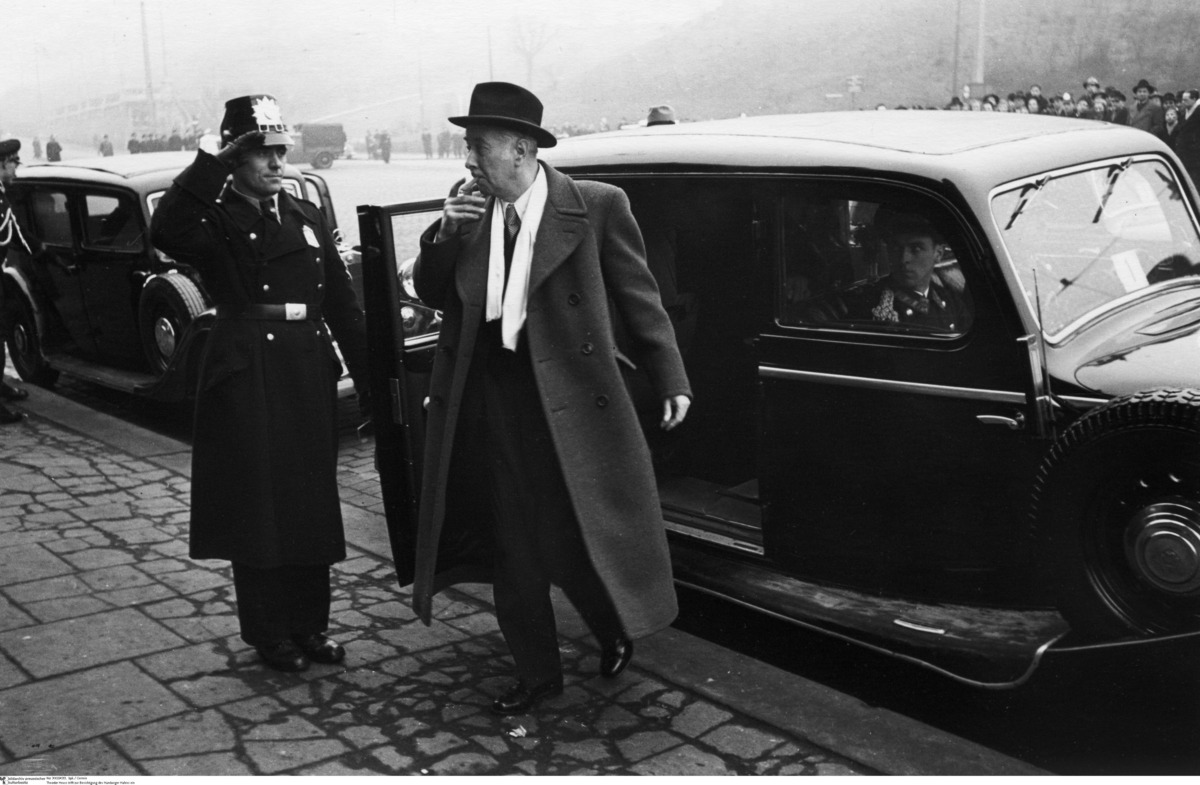Abstract
Removed from the daily business of politics – for which the patriarchal Adenauer, a pragmatic, power-oriented politician, was responsible – the first president of the Federal Republic, Theodor Heuss, shaped and refined the political culture of the young West German republic. He was elected on September 12, 1949, and remained in office until his election as chairman of the FDP. As an aesthetically-oriented intellectual and representative of the liberal middle class, Heuss stood for the continuity of Germany as a nation of philosophy, art and culture. He opposed banishing the memory of National Socialism from the public consciousness and called for rehabilitating the resistance against Hitler. Through his prudent, non-partisan, and intelligent fulfillment of the duties of a largely symbolic office, Heuss won respect and popularity: in 1954, the exceedingly well-liked president was re-elected by the Federal Assembly (Bundesversammlung) with 88 percent of the votes and subsequently received 14,000 congratulatory letters from the West German people.
